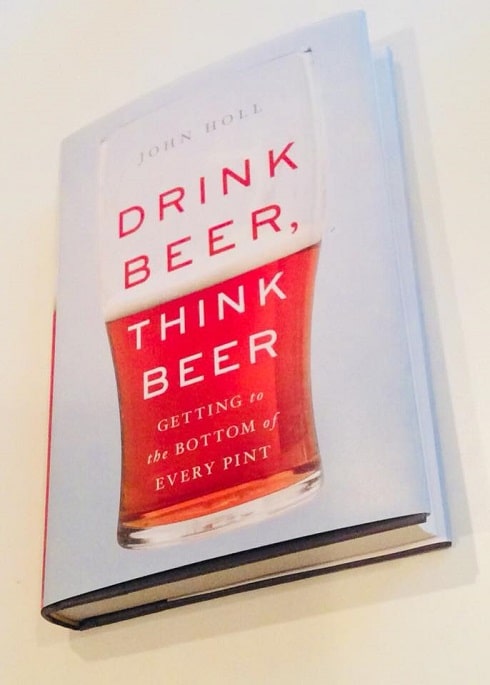
I have listened to podcasts with and read magazines edited by John Holl and have found him to be straightforward with loads of beer knowledge. I have also disagreements with some of his points.
And all of that is on display in the new book, Drink Beer, Think Beer. From the mis-use of Quality Control instead of the more accurate consistency control, to the repeated cry of bad beer from “craft” (wait, he doesn’t like that term or “independent”) breweries, I feel like setting the book down, only to find a great argument on the next page.
This gives the book a debate club sort of feel. There is no doubt that Holl has had a great many beers and a lengthy beer education but whenever I am about to be persuaded to his side, he undercuts by siding with big macrobreweries or proclaiming that the word balanced in a review forgets the effects of yeast or water.
Seriously, in that case, all beer reviews forget water literally ALL the time and yeast a vast percentage too.
Regular readers will know that I hate the regurgitation of beers ingredients in books and though Holl shifts the focus a bit, it still comes off as quick primer material. Same with glassware. Which may be fine for non-beer geeks but I don’t think this book is pitched to the non-believers.
And though I do like his opinionated nature and he backs up those opinions with reasons why he likes/dislikes something, I found the book frustrating as a whole and not adding as much as could have been to beer discussion. There also seemed to be slight digs aimed at beer fans, beer bloggers and brewers that could have been left out. It left me thinking he was ticked off or on the fence leaning toward pessimism.
Personally, I would have liked perhaps more of a book about the problems and issues that breweries face before they open, after they open and in the future. I think his insights after visiting so many breweries would really shed light on the industry and be a new and vital topic.
Drink Beer, Think Beer seems to be an uneasy melding of the traditional and overdone, beer primer mixed with industry issues and the two just don’t work together in this book.
